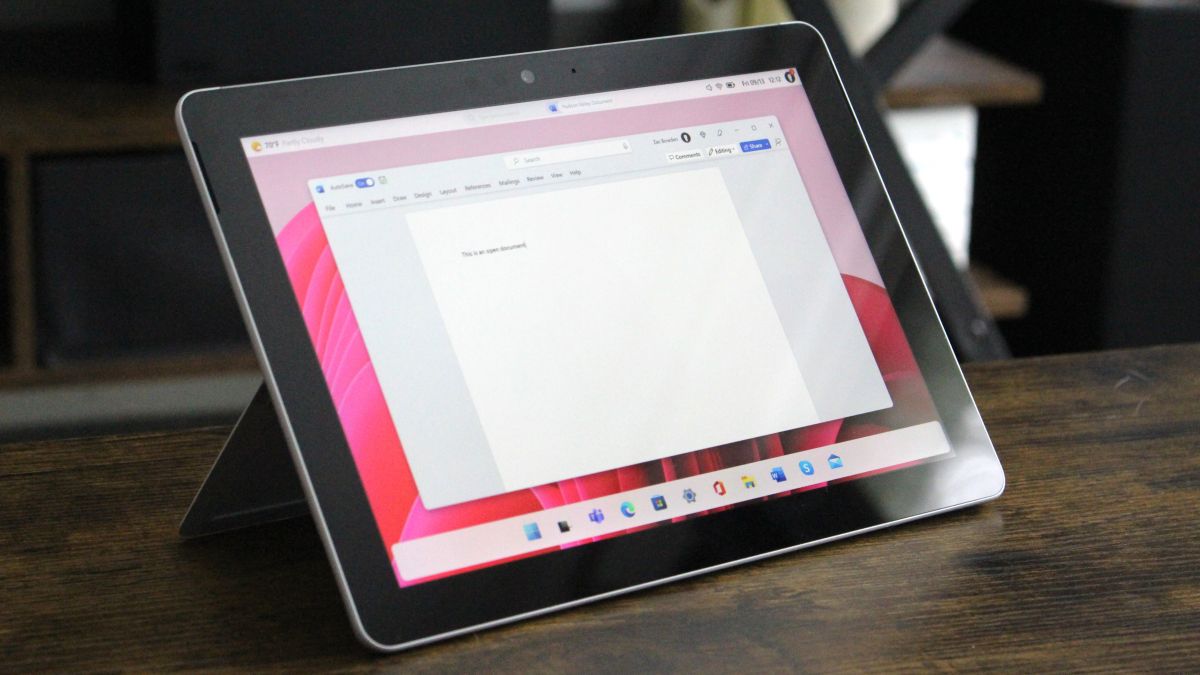Lenovo might take on Microsoft's next major version of Windows with its own AI-powered operating system
Lenovo is giving Microsoft a run for its money with its alleged own AI-powered operating system.

What you need to know
- Lenovo is reportedly developing an operating system that will ship with AI capabilities.
- While details remain slim, the AI-powered OS "will be built around multi-terminal products, focusing on AI PCs and personal agents."
- The AI-powered OS will be designed to promote the development of the AI-powered PC ecosystem, ultimately allowing Lenovo's AI hardware to unlock a new stage of development.
Lenovo is a well-known brand, predominantly because of its ThinkPad business line of laptops. And as it now seems, the company reportedly is developing an AI-powered operating system that could potentially take on Microsoft's soon-to-launch Windows 11 version 24H2.
The company's executive VP, Liu Jun provided subtle hints about these plans during the just-concluded CES 2024 event in Las Vegas, according to a spot by TechRadar. While divulged details are slim, the company lead disclosed that the operating system "will be built around multi-terminal products, with a focus on AI PCs and personal agents."
We already know that Lenovo is set to launch a line of AI-powered PCs during the first half of this year, with multi-modal natural language interaction capabilities and more. Therefore, its plans to also ship an AI operating system align neatly.
The operating system will be designed to promote and enhance the development of the AI-powered PC ecosystem. Consequently, this will also allow Lenovo's AI hardware to reach a new stage of development.
READ MORE: Microsoft adds dedicated AI Copilot key to all future PCs
Besides the AI-powered OS, the company is also working on AI-embedded smart terminals which will be in place to allow everyone to access AI technology while simultaneously maintaining privacy and security.
We might get a Windows 12 iteration, but not from Microsoft

For the better part of last year, rumors hitting the windmill indicated that Microsoft would ship a new version of its Windows OS — Windows 12. While most people assumed that Microsoft would name it Windows 12, it recently announced that the OS update will be called Windows 11 version 24H2.
All the latest news, reviews, and guides for Windows and Xbox diehards.
Our Senior Editor, Zac Bowden, explained that Microsoft might have taken this approach because "it doesn't want to further fragment the Windows userbase with a third in-market version." Moreover, this will allow all Windows 11 users to easily access and download it since it will ship as a feature update later this year during the fall.
Microsoft has been leaning heavily on AI after extending its partnership with OpenAI by making a multi-billion dollar investment in its technology. The company has incorporated the technology across most of its products and services, so it shouldn't differ from its next major version of Windows.
RELATED: Here's everything we know so far about Windows 12
Lenovo could potentially dent Microsoft's Windows market share if it seizes this opportunity by making its minimum system requirements for its AI-powered OS more friendly than Windows 11's. Multiple users have indicated they cannot upgrade to Windows 11 due to Microsoft's stringent requirements and the strained PC market. This explains why Windows 10 continues to reign over Windows 11.
Lenovo's plans for the AI-powered OS remain unclear, but this venture could be lucrative if executed correctly. Microsoft continues to pressure Windows 10 users to upgrade to Windows 11 and has even used full-screen multipage ads to further this agenda. However, Google recently pitched its ChromeOS Flex OS solution, which will continue to receive regular updates and allow users to retain their existing devices well beyond Windows's 10 cutoff date.

Kevin Okemwa is a seasoned tech journalist based in Nairobi, Kenya with lots of experience covering the latest trends and developments in the industry at Windows Central. With a passion for innovation and a keen eye for detail, he has written for leading publications such as OnMSFT, MakeUseOf, and Windows Report, providing insightful analysis and breaking news on everything revolving around the Microsoft ecosystem. While AFK and not busy following the ever-emerging trends in tech, you can find him exploring the world or listening to music.
